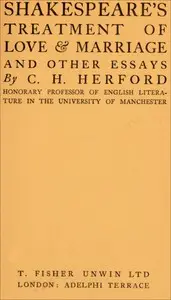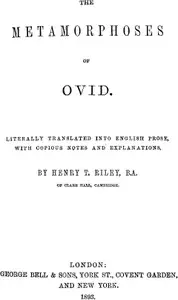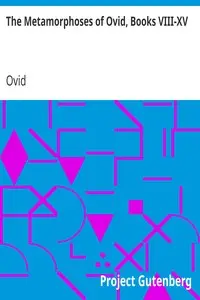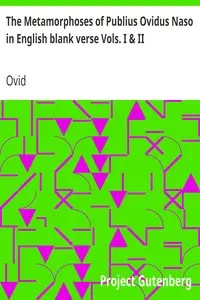"The Amores; or, Amours" by Ovid is a set of poems from long ago that talks about love and how tricky it can be, but also how funny. The writer tells stories to someone he really likes, named Corinna, about all the good and bad things that happen when you care about someone so much. The book starts by saying the writer is changing from writing about big wars to writing about love. He makes a joke about how Cupid made him do it, and shows how much he wants love and how open he is about his feelings. The poet mixes funny parts with smart ideas about love, hinting that the poems will be full of different love stories, with happy and sad moments mixed together.

The Amores; or, Amours Literally Translated into English Prose, with Copious Notes
By Ovid
Blinded by affection, a poet abandons tales of war to explore the euphoric highs and crushing lows of romance.
Summary
About the AuthorPublius Ovidius Naso, known in English as Ovid, was a Roman poet who lived during the reign of Augustus. He was a younger contemporary of Virgil and Horace, with whom he is often ranked as one of the three canonical poets of Latin literature. The Imperial scholar Quintilian considered him the last of the Latin love elegists. Although Ovid enjoyed enormous popularity during his lifetime, the emperor Augustus exiled him to Tomis, the capital of the newly-organised province of Moesia, on the Black Sea, where he remained for the last nine or ten years of his life. Ovid himself attributed his banishment to a "poem and a mistake", but his reluctance to disclose specifics has resulted in much speculation among scholars.
Publius Ovidius Naso, known in English as Ovid, was a Roman poet who lived during the reign of Augustus. He was a younger contemporary of Virgil and Horace, with whom he is often ranked as one of the three canonical poets of Latin literature. The Imperial scholar Quintilian considered him the last of the Latin love elegists. Although Ovid enjoyed enormous popularity during his lifetime, the emperor Augustus exiled him to Tomis, the capital of the newly-organised province of Moesia, on the Black Sea, where he remained for the last nine or ten years of his life. Ovid himself attributed his banishment to a "poem and a mistake", but his reluctance to disclose specifics has resulted in much speculation among scholars.












